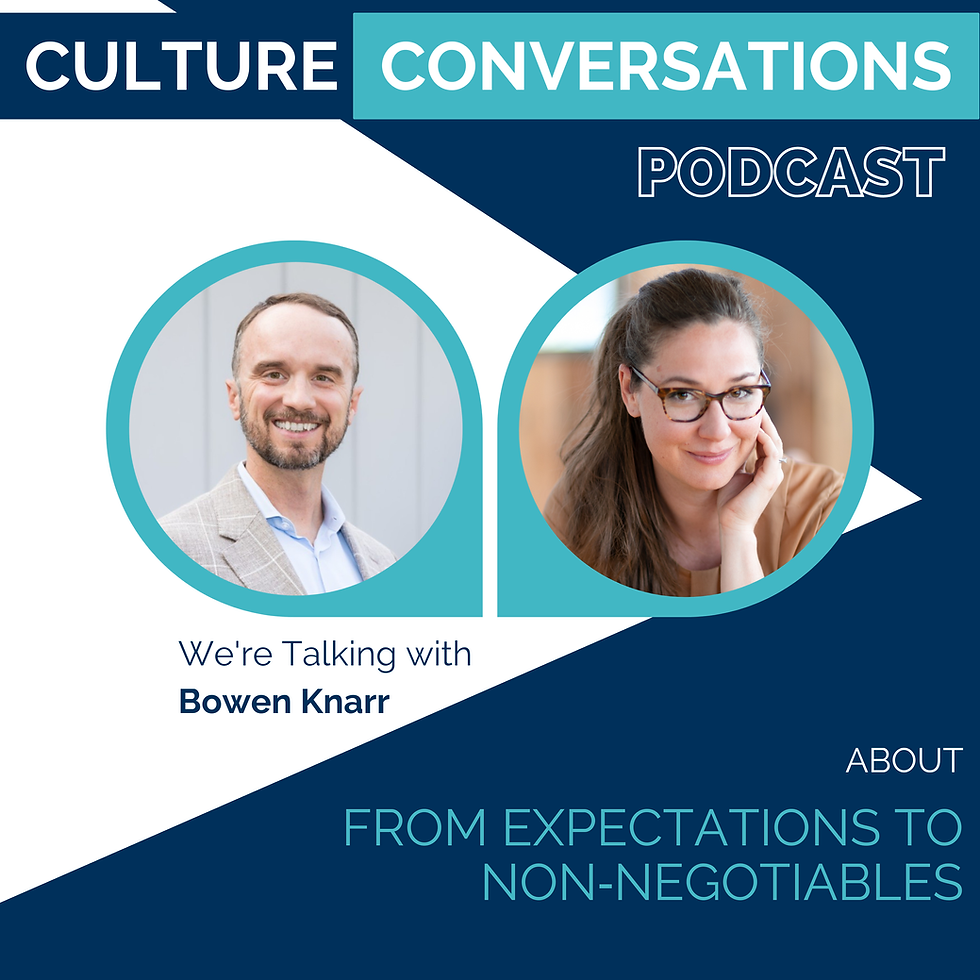Why Your Quietest Leaders May Be Your Most Powerful
- Megan Robinson

- Sep 17, 2025
- 4 min read
Let's get brutally honest about something most executives won't admit: You have no idea what's happening with half your workforce.
I'm talking about your introverts. The ones who aren't dominating every meeting, who aren't self-promoting at every opportunity, who aren't the loudest voice in the room. What are they up to right now? Quietly quitting? Brilliantly innovating?
Most organizations will never know because they are clueless about how to support and maximize their introvert talent.
But, here's the hard truth: Without your introverts, your business will become a circus of ego maniacs talking over each other and sabotaging everyone's efforts.
Stop Making Introverts Feel Like Defective Extroverts
For decades, we've worshipped at the altar of extroversion. We've convinced ourselves that leadership looks like commanding a room and networking until 2 AM. We've built cultures that celebrate the squeaky wheel and reward the loudest voice.
This isn’t just wrong, it's strategically stupid.
While your extroverts are busy performing leadership and checking boxes, your introverts are actually doing it. They're listening when others are waiting to talk, and processing complex information while others are shooting from the hip. They're building deep, meaningful relationships while others are working the room.
The Introvert Leadership Superpowers You're Probably Ignoring
The business world has spent decades obsessing over the wrong leadership traits. We've been seduced by the idea that great leaders must be charismatic speakers or dominant personalities who command every room they enter. Meanwhile, we've completely overlooked the quiet revolutionaries sitting right under our noses. Your introverted employees possess a distinct set of leadership capabilities that may be more valuable than traditional extroverted skills. But, most organizations don't even recognize these superpowers, let alone know how to harness them.
Here are just some of their superpowers:
Deep Listening: While extroverts think out loud, introverts think before they speak. They hear what others miss and understand the underlying issues that surface-level conversations don’t reveal.
Strategic Thinking: Introverts excel at seeing the big picture and connecting dots that others miss. They're not distracted by the noise; they're focused on the signal.
Authentic Relationship Building: While networking events may not be their forte. Introverts build the kind of deep, trust-based relationships that actually move business forward. They would rather build a few quality relationships than many surface-level contacts.
Decision Making Under Pressure: Introverts bring stability and thoughtfulness to high-stakes situations. They are more likely to gather information, consider multiple perspectives, and make decisions based on data rather than react on impulse.
While not every introvert has mastered all of these abilities, they each represent inherent strengths worth acknowledging. This doesn't mean extroverts can't develop these same skills and capabilities; they absolutely can. The real challenge is building an intentional culture that actively nurtures and rewards these skills, rather than allowing typical extroverted behaviors to overshadow and undervalue them.
The 7 Ways Your Culture Is Sabotaging Introvert Power
Here's where most organizations completely blow it. You may be actively working against your introvert instead of supporting them:
1. Meeting Madness: Does every decision at your organization seem to require a room full of people talking in circles? Introverts will thrive when presented with a chance to participate in focused, purposeful discussions.
2. Open Office Torture: You've created environments where deep thinking is impossible and interruption is constant. Sometimes, we need walls.
3. Brainstorming Bias: You favor rapid-fire idea generation over thoughtful problem-solving. Introverts don’t want to shout ideas at the whiteboard. Many organizations aren’t giving more time outside the meeting for employees to volunteer other options. Instead, companies are failing too fast and not learning from their mistakes.
4. Performance Theater: You reward those who look busy over those who produce results, and assume those who speak up most have the best ideas.
5. Instant Response Expectations: You expect immediate answers instead of allowing time for thoughtful consideration. Instant messaging apps like Slack and Teams can be powerful, even for introverts, but are not the right channel for every type of communication.
6. Extrovert Promotion Pipeline: Your leadership development programs are designed for and by extroverts.
7. Communication Conformity: You privilege verbal communication over written, and group discussion over individual reflection. Documentation is lax and often causes additional confusion and miscommunications, while wasting resources.
The Strategic Advantage of Getting This Right
There are several strategies you can implement to support all employees and help everyone utilize their strengths. Some of these will be immediately actionable, and some may take a shift in systems, processes or even the environment.
First, create communication channels that work for everyone. Send agendas in advance. Use written follow-ups. Build in reflection time and the opportunity for others to add ideas after a meeting. Allow for one-on-one discussions before group decisions.
Next, design environments that support deep work. All people need quiet spaces

from time to time: not just introverts! Find a way to minimize interruptions and respect focus time. Not everyone needs to be "collaborative" every second of the day.
Be cognizant of different leadership styles. Introvert leaders influence through expertise, authenticity, and deep relationships. Stop looking for the loudest voice and start looking for the most insightful one.
On a longer timeline, seek to build diverse teams intentionally. Pair introverts with extroverts. Use their different strengths to create more effective decision-making and problem-solving. Be prepared to support the natural tension with coaching conversations and thoughtful 1:1s.
Lastly, develop leadership programs. Create programs and leadership competencies that support introverts (and extroverts) in identifying and developing their unique leadership voice instead of prioritizing a one-size-fits-all leadership vision.
The Bottom Line
The question isn't whether you have introverts in your organization. The question is whether you're smart enough to recognize their value, and innovative enough to support their development.
If your organization is looking for a partner to nurture this talent and maximize organizational productivity, please reach out to E Leader Experience.
Here's what we know: Organizations that intentionally develop introvert leadership capabilities see measurably better results. Those that don't leave talent and competitive advantage on the table.
If your organization is ready to stop overlooking half your leadership potential and start maximizing it, E Leader Experience has the expertise to help you build cultures where every leadership style thrives. Ready to unlock the introvert advantage in your organization? Connect with E Leader Experience today. Because the best leaders aren't always the loudest ones, and it's time your culture reflected that reality.




Comments